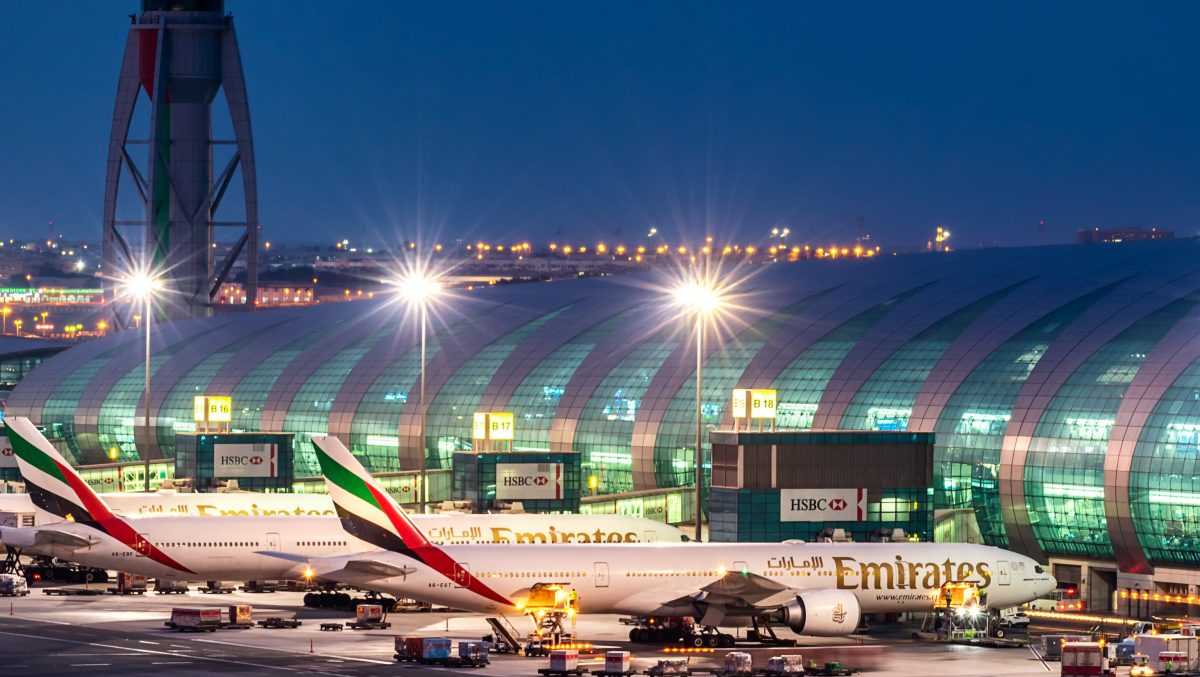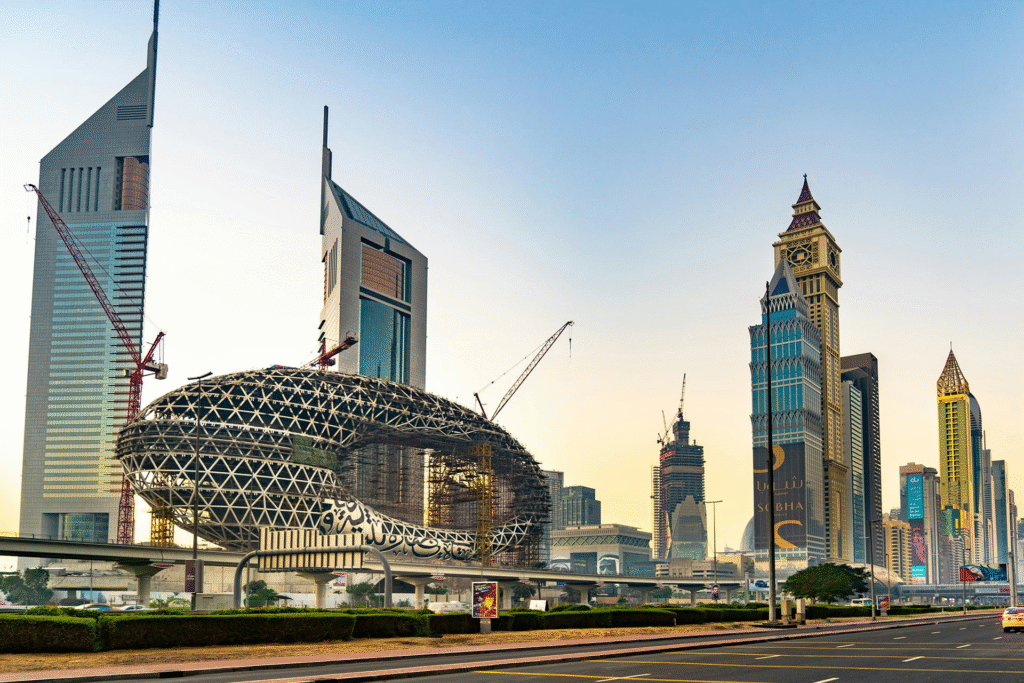
Dubai, a city once known for its desert landscapes, has become a global symbol of innovation and ambition. Over the past two decades, its bold infrastructure investments have not only changed the city’s skyline but have also sparked powerful economic ripple effects felt across the Middle East and beyond. From massive airports and futuristic metro systems to towering business districts and high-tech ports, Dubai’s commitment to building world-class infrastructure is paying off in remarkable ways.

At the heart of Dubai’s success story is a strong vision: transform the emirate into a global hub for business, tourism, and trade. Mega-projects like Dubai International Airport, Al Maktoum International Airport (Dubai World Central), the Dubai Metro, and the expansion of Jebel Ali Port have helped connect Dubai to every corner of the world.
These investments have not just created modern transport networks and luxurious skyscrapers; they have made Dubai more attractive to foreign investors, multinational companies, and skilled workers. As a result, thousands of new jobs have been created, driving prosperity across the emirate.
According to Dubai’s Department of Economy and Tourism, the construction sector alone contributes more than 6% to Dubai’s GDP, supporting industries ranging from materials manufacturing to real estate development. As construction projects continue to grow, so too does the demand for engineering, architecture, and design services, creating opportunities for both local and international businesses.
Dubai’s breathtaking infrastructure has also transformed it into a tourist magnet. Landmarks like the Burj Khalifa, Palm Jumeirah, and Dubai Mall have become iconic attractions, drawing millions of visitors every year. Dubai International Airport, ranked among the world’s busiest airports, handled nearly 87 million passengers in 2023 alone, highlighting Dubai’s role as a global travel hub.
The tourism ripple effects are clear. More visitors mean more hotels, restaurants, entertainment venues, and transportation providers. This demand fuels thousands of jobs and supports small and medium enterprises (SMEs) in the hospitality sector. Additionally, Dubai’s investment in state-of-the-art exhibition centers and event spaces has made it a top destination for global conferences and trade shows, further boosting its economy.
Dubai’s location between East and West has always been strategic, but its infrastructure investments have maximized this advantage. Jebel Ali Port, one of the largest man-made ports in the world, is a backbone of the UAE’s trade sector. The port, combined with advanced logistics zones like Dubai South, has made the emirate a gateway for trade across the Middle East, Africa, and Asia.
With the support of world-class roads, rail, and air connectivity, Dubai has become a supply chain powerhouse. This status has attracted global logistics companies and spurred the growth of the e-commerce sector, which relies on fast and efficient transport links. As businesses around the world look for reliable trade hubs, Dubai’s infrastructure provides a competitive edge that few can match.
Dubai’s infrastructure ambitions go far beyond concrete and steel. The emirate is investing in smart technologies and sustainable solutions to build a future-ready economy. The Dubai Clean Energy Strategy 2050, for example, aims to make the emirate a leader in green energy, with massive solar farms like the Mohammed bin Rashid Al Maktoum Solar Park already powering parts of the city.
Additionally, Dubai’s smart city initiatives are integrating technologies like artificial intelligence, Internet of Things (IoT), and big data to improve everything from traffic flow to energy efficiency. These future-focused projects not only create high-skilled jobs but also attract international partnerships and research opportunities, further diversifying the economy.
When large infrastructure projects move forward, countless local businesses benefit. Construction firms, suppliers of raw materials, catering services, transport operators, and even marketing agencies gain contracts and opportunities. This multiplier effect strengthens the small business ecosystem, helping entrepreneurs and SMEs thrive.
Moreover, the government’s clear commitment to world-class infrastructure reassures investors that Dubai is a stable, forward-thinking environment for business growth. This confidence is crucial in attracting foreign direct investment (FDI), which hit AED 39.1 billion (around USD 10.6 billion) in 2023 alone, according to Dubai FDI reports.
Even during global economic challenges, Dubai’s infrastructure backbone has helped it stay resilient. During the COVID-19 pandemic, Dubai’s efficient airports, hospitals, and supply chains allowed it to bounce back quickly and continue hosting world events, such as Expo 2020 Dubai.
This resilience is not accidental. It comes from decades of careful planning and billions in investment, ensuring that Dubai’s infrastructure can withstand shocks and adapt to changing global needs.

Dubai’s infrastructure success story has become a blueprint for other cities in the Middle East and developing countries worldwide. By prioritizing connectivity, innovation, and sustainability, Dubai has shown how strategic investments can transform a city’s economy and improve the quality of life for its people.
Other governments have taken note, studying Dubai’s approach to public-private partnerships, regulatory reforms, and long-term planning. In this way, the economic ripple effects of Dubai’s infrastructure reach far beyond its own borders, inspiring other regions to invest in their own growth.
Dubai shows no signs of slowing down. The government continues to announce new projects, including advanced metro extensions, smart mobility corridors, green buildings, and even plans for hyperloop travel in the future. These initiatives will further strengthen Dubai’s global position, making it an even more attractive destination for trade, tourism, and innovation.
As the emirate looks to diversify beyond oil, infrastructure will remain at the heart of its economic strategy. From fueling job growth to empowering entrepreneurs and connecting the world, Dubai’s infrastructure investments will continue to send positive ripple effects across the region and the global economy.
Read More:- Deyaar’s Latest Announcement Shakes Up the UAE Property Market
